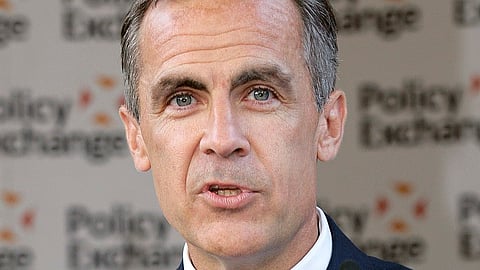

In a notable departure from tradition, Canada’s newly appointed Prime Minister, Mark Carney, has chosen Europe over the United States for his first official foreign visits. Carney’s inaugural trip took him to Paris, followed by a scheduled visit to London, where he is set to meet with UK Prime Minister Keir Starmer and King Charles III, Canada’s head of state. The decision underscores a deliberate effort to reaffirm ties with the two nations that played a pivotal role in shaping Canada’s early history.
At his swearing-in ceremony on Friday, Carney emphasized Canada’s unique identity, rooted in the contributions of Indigenous, French, and British peoples. He stressed that Canada is fundamentally distinct from the United States, declaring that the country would “never, ever, in any way, shape, or form, be part of the United States.” This sentiment appears to guide his foreign policy approach as he seeks to strengthen partnerships with France and the United Kingdom.
A Deliberate Snub to the U.S.?
A senior government official, briefing reporters en route to pick up Carney in Montreal, described the trip as an opportunity to “double down” on Canada’s relationships with its two founding nations. The official noted that while Canada remains a “good friend of the United States,” the current political climate has necessitated a reevaluation of priorities. The comments come amid escalating tensions between Canada and the U.S., particularly under the administration of former President Donald Trump.
Since taking office, Trump imposed tariffs on Canadian steel and aluminum and repeatedly suggested that Canada could become the “51st state” of the U.S. These actions have sparked widespread frustration among Canadians, leading to calls for a boycott of American products. Trump’s recent threat to impose sweeping tariffs on all Canadian goods by April 2 has further strained relations.
Carney has expressed a willingness to engage with Trump, but only if the U.S. demonstrates respect for Canadian sovereignty. While he has no immediate plans to visit Washington, Carney hopes to arrange a phone call with the U.S. president in the near future. In the meantime, his government is reconsidering its planned purchase of U.S.-made F-35 fighter jets, a move that aligns with broader concerns over the brewing trade war.
France’s Push for Military Independence
Carney’s visit to Paris also coincides with French President Emmanuel Macron’s efforts to encourage allies to reduce their reliance on American military hardware. Macron’s campaign aligns with Canada’s ongoing review of the F-35 deal, signaling a potential shift in defense procurement strategies among U.S. allies.
As Carney navigates these complex diplomatic waters, his early foreign policy decisions highlight a clear intent to prioritize Canada’s historical and cultural ties with Europe while cautiously managing its relationship with the United States. The coming weeks will reveal whether this approach can mitigate the challenges posed by an increasingly unpredictable neighbor to the south.